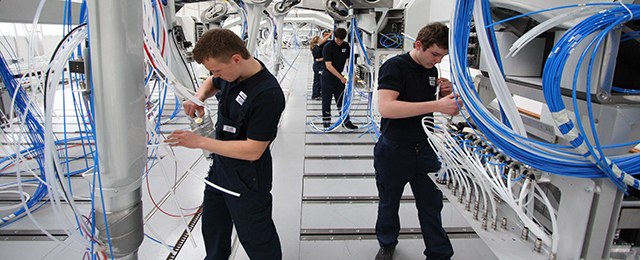The ZEW Indicator of Economic Sentiment for the country gained 23.4 points in December. It reached 34.9 points, the highest reading since May 2014. Likewise, the Ifo Institute Business Climate Index for industry and trade in Germany rose to 105.5 points in December from 104.7 points last month. Both German institutes point out the “seasonal gifts” of dropping oil prices and a weak euro to the German economy. Therefore ZEW President Prof. Clemens Fuest warns that Germans should be aware that these factors “might change even over the short term”.
The Bundesbank was also optimistic in its monthly report in December. According to their president, Jens Weidmann, there is reason to hope that the current sluggish phase will prove to be short-lived. Indeed, Bundesbank’s economists forecast a real GDP growth of 1% (0.8% after working-day adjustment) in 2015 and expect the sound employment developments to continue. As a result of this and the implementation of the general minimum wage, wages will record a further marked increase of just under 3% per year. Nevertheless, they predict inflation to increase only from 0.9% this year to 1.1% in 2015. Since this forecast was finalised before the substantial fall of crude oil prices, Bundesbank economists warned that there might be an upward revision of projected GDP growth (0.1 to 0.2 percentage point higher) and a downward revision of the inflation forecast (by 0.4 percentage point).
Researchers from Berlin-based Institute of Economic Research (DIW) have pointed out in their last report that German economy has veered back on an upward course in December. According to DIW projection, real GDP is estimated to grow by 1.4 % in 2015 with an inflation of 0.7%. Both the foreign demand and the private consumption will support this growth.
“The German economy is benefiting from an improving global economic situation,” says Dr. Fichtner, head of Department of Forecasting and Economic Policy at DIW. “In particular, the economic performance in the US is growing rapidly, but also the UK’s development is positive. The emerging markets, especially China, however, are losing some momentum. The biggest drag on the German economy is still the Eurozone, which hardly moves forward. The major structural problems are still unsolved in many countries and the growth is correspondingly weak”.
Moreover, the Bundesbank also highlighted that if the economic recovery in the euro area picks up as expected and world trade gains renewed momentum, additional expansion in Germany will be possible in 2015. On the contrary, the Eurozone expects the German consumption and investment to increase in order to accelerate their growth in the coming years. In fact, regarding Germany’s private consumption, it is expected to continue to gain a more important role in the German economy. Based on a persistently positive situation in the labour market, high wage growth, as well as strong increases in social benefits, the forward-looking consumer confidence index for January hit its highest level since December 2006, according to the market research group GfK.
“In addition, the fact that the propensity to save dropped to a record low in December has also boosted the spending mood,” GfK said in a statement.
Considering that declining energy prices are also raising purchasing power significantly, as well as driving up company profits, Germany’s renewed confidence in 2015 could bring some good news for the European exporters. But so far, a GDP growth rate between 1-1.5% in 2015 continues to be too weak to work as Europe’s engine.






Be the first to comment on "Germany 2015: Some happy news, yet not enough to revive eurozone’s growth"